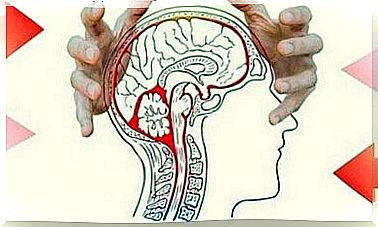What Role Does Anxiety Sensitivity Play In Cigarette Smoking?

We’ve all heard or said the phrase “ I’m nervous, I need a cigarette ”. Thus, the belief that tobacco has enormous anxiolytic power is so widespread that it has become part of the collective unconscious. Many people believe that smoking has a relaxing effect, similar to a valerian infusion. In this way, many people continue to smoke for the sole purpose of keeping calm.
But the reality is that this is not true. Tobacco is an excitatory substance. When smoking, we become more active and also more nervous. The “calmness” we feel at first when inhaling a cigarette has to do with reducing the anxiety of consuming the addictive substance, not because it actually has a relaxing effect. In fact, our sensitivity to anxiety significantly influences tobacco consumption.
Anxiety and the first drags
For starters, what is anxiety sensitivity? Anxiety sensitivity is the fear some people have of anxiety itself and its symptoms. These people think that stress has very harmful consequences for them. Thus, when they detect indicators that they are experiencing this emotion, it amplifies it.
The danger of having a heightened anxiety sensitivity when starting to smoke is that these people can see how beneficial this first reduction in anxiety that is achieved immediately after a drag is. The fact that they find in tobacco consumption an effective way to regulate anxiety will make them start smoking habitually. Also, it will be a reason not to give up the addiction.
That is, these people internalize the idea that smoking is an acceptable and “profitable” way to reduce anxiety. In other words, they will make tobacco use their strategy for regulating anxiety. Therefore, it is important to learn to put into practice other types of coping strategies for stress, so that we are able to deal with it without carrying out harmful behaviors for our health, such as smoking.
What role does anxiety sensitivity play in continuing to smoke?
As with starting to smoke, anxiety sensitivity also plays a role in whether we continue to smoke. This is not just because these people are more sensitive to the anxiolytic effect of cigarettes from the first drag; other factors also play a role.
In particular, people with high anxiety sensitivity have a greater positive effect after smoking. Thus, they also feel greater satisfaction. Furthermore, the psychological reward for them increases. Thus, smoking not only reduces anxiety, but also positive emotions appear that will influence the person to continue smoking.
This will cause people with high anxiety sensitivity to smoke more relentlessly when faced with stressful situations that cause them negative emotions. In other words, again, they use the smoking behavior to regulate stress instead of facing it in a more adaptive way.
How does anxiety sensitivity act when quitting smoking?
Anxiety sensitivity is especially important for those who want to quit smoking. It directly interferes in the attempts to stop consumption, as these people feel certain withdrawal symptoms more intense in the first week. Therefore, they are less likely to stop smoking and have a higher risk of relapse.
These people also have more failed attempts to quit smoking. The consequence is that they feel less able to do this. Furthermore, they believe that in the end the only thing they will achieve is to increase their sense of discomfort. As mentioned above, these people are afraid of feeling more anxious, and these expectations will mean an added disadvantage to the process of quitting smoking, which in itself is difficult.

For all these reasons, it is interesting to work concretely on sensitivity to anxiety with people who want to quit smoking. For this, it is necessary that they gradually expose themselves to anxiety. That is, they have to feel it. In this way, they will be able to see that they are able to manage it and will not be so afraid of it, which will reduce the negative effects of this sensitivity on smoking cessation.
Images courtesy of Stas Svechnikov, Lucas Philip and Dmitry Ermakov.









